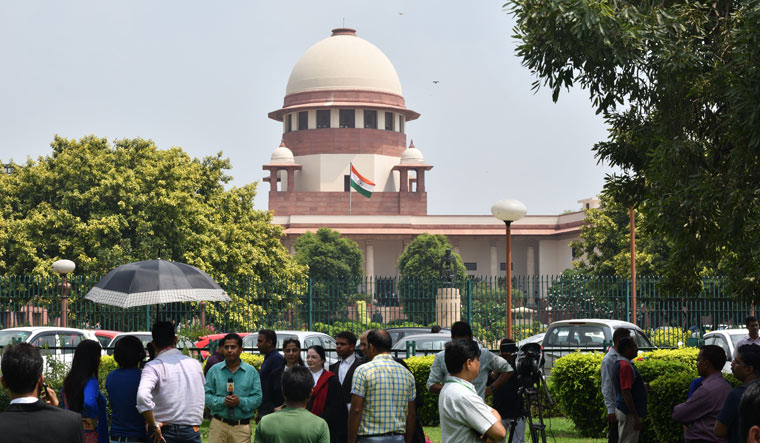As the Supreme Court hears a petition for decriminalising gay sex, the court's earlier judgment declaring privacy as a fundamental right may well have set the tone for the judges to do away with Section 377 of the Indian Penal Code which criminalises gay sex.
A nine-judge bench in August, 2017 had passed its judgment placing privacy at the centre of the Constitutional framework of fundamental rights. Five of the judges found a direct correlation between a person's right to privacy and his or her sexual orientation.
Justice D.Y. Chandrachud, who authored one of the concurring judgments, on behalf of the then Chief Justice J.S. Khehar, Justice R.K. Agarwal, Justice Nazeer and himself, wrote: “Discrimination against an individual on the basis of sexual orientation is deeply offensive to the dignity and self-worth of the individual.”
Declaring that a 2014 Supreme Court order by a two-judge bench had gravely erred in annulling a Delhi High Court verdict decriminalising gay sex between consenting adults, Chandrachud wrote in the judgment that the rights of the LGBT community are inherent to right to life. “They dwell in privacy and dignity. They constitute the essence of liberty and freedom,” he wrote.
Chandrachud, who is also on the five-judge bench hearing the curative petition seeking a review of the apex court's earlier order on Section 377, also wrote: “Sexual orientation is an essential component of identity. Equal protection demands protection of the identity of every individual without discrimination.”
The 2017 judgment noted that right to privacy and protection of sexual orientation lie at the core of fundamental rights guaranteed by Articles 14, 15 and 21. It also said that the Supreme Court's order overruling the high court's verdict was a “discordant note” in the evolution of the right to privacy.
Another concurring judgment by Justice Sanjay Kishan Kaul said: “The privacy of the home must protect the family, marriage, procreation and sexual orientation which are all important aspects of dignity.”
The Section 377, which criminalises gay sex, was read down by the Delhi High Court in its July 2, 2009 order. The then Chief Justice of the High Court Justice A.P. Shah had said in the judgment that Section 377, as far as sex between two consenting adults was concerned, was decriminalised. The penal section deals with sexual intercourse that is “against the order of nature.”
However, a two-judge bench of the Supreme Court comprising Justices G.S. Singhvi and S.J. Mukhopadhyay had overturned the high court's order in December, 2013.


